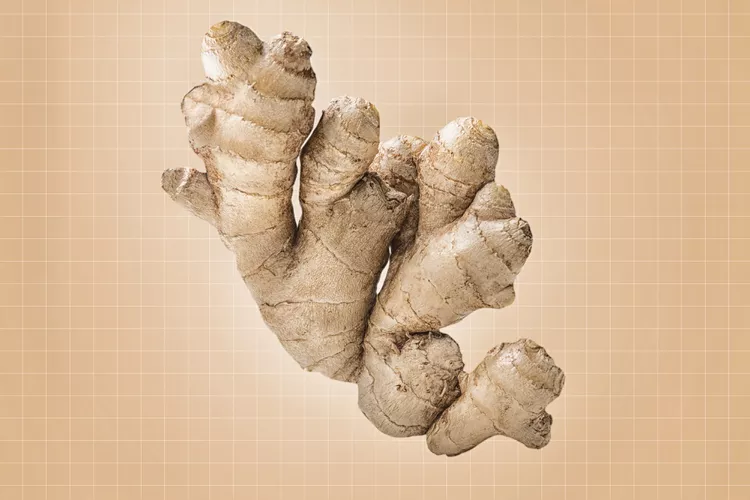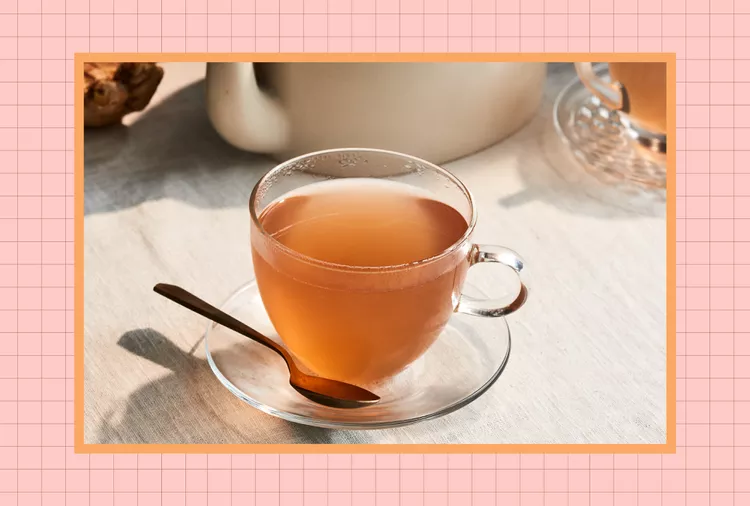Health experts revealed how ginger can affect your medications in four ways. Ginger is a versatile and multipurpose substance that can be utilized as a food item, spice, flavor enhancer, or medicinal ingredient. This rhizome is renowned for imparting a characteristic fragrance and a spicy taste to both savory and sweet dishes(1). For over three millennia, ginger has been used in traditional medicine systems across various nations to treat many health issues, including headaches, nausea, vomiting, menstrual cramps, diarrhea, and the common cold. In addition to its anti-inflammatory and antioxidant properties, recent research indicates that ginger may also be effective in reducing blood pressure, cholesterol, and blood sugar levels, while simultaneously regulating blood sugar levels to safeguard the heart (1).
Given the potential health benefits of ginger, it is important to keep in mind that while it is a natural remedy, it can interact with certain pharmaceutical drugs. Being aware of these interactions can help protect your health. To provide accurate information, we sought the advice and insights of professionals, including two certified dietitians and a pharmacist. Here is what you should know:
Four Drugs That Ginger May Interact With
Individuals who are using any of the following drugs may find ginger beneficial for their health, but it is crucial to consult with a doctor before increasing ginger consumption or taking ginger supplements:
1. Blood Thinners:
Ginger's flavor comes from various antioxidant compounds, including gingerols, shogaol, zingiberene, and bisabolene, which may also exhibit blood-thinning properties (2). According to Havy Ngo-Hamilton, Pharm.D., RPh, a clinical pharmacist at the University of Minnesota Medical Center, these substances can interact with thromboxane, a chemical generated by platelets. Platelets are the tiny blood components that clot when bleeding occurs. Thromboxane causes platelets to aggregate and form blood clots, while also narrowing blood arteries and reducing blood flow to the injured area (2). On the other hand, ginger may interfere with thromboxane, impairing the body's natural ability to clot blood, and increasing the risk of bleeding.Taking ginger supplements along with blood thinners like rivaroxaban (Xarelto), aspirin, clopidogrel (Plavix), and warfarin (Coumadin) may increase the risk of bleeding (2).
2. Pharmacological Interactions in Diabetes Management
In patients with type 2 diabetes, ginger has been demonstrated to improve A1C and insulin sensitivity while lowering fasting blood sugar levels. This is excellent news! However, it is important to note that adding ginger to an existing regimen of insulin, metformin, or other blood sugar-lowering medications may result in even lower blood sugar levels. The reason for this is that compounds found in ginger may interfere with enzymes that break down carbohydrates, which can exacerbate the effects of diabetic medications. Overuse of ginger can also lead to hypoglycemia or low blood sugar levels (3).
3.Drug Interactions in Cardiac Arrhythmias
According to Ngo-Hamilton, ginger may interact with amiodarone (Pacerone, Cordarone) and other medications used to treat arrhythmias or irregular heartbeats.Calcium channels present in heart cells play a crucial role in regulating heart contractions(4). Ginger has been found to inhibit the entry of calcium into heart cells, which may result in reduced blood pressure(5).
4. Pharmacological Interactions in Hypertension Management
Ginger has been shown to enhance the effectiveness of blood pressure medications. Angiotensin, a hormone that regulates fluid balance and blood pressure in the body, may also be affected by ginger. The long-term relaxation of blood vessels may result in low blood pressure(5).
The Influence of Ginger on Medication Absorption
When taken in conjunction with other medications, ginger may not only interact with them but may also intensify their effects. If you experience any negative side effects, such as sweating, trembling, uneasiness, anxiety, or dizziness, after taking ginger or supplements containing ginger and medication, seek medical attention immediately.
Safe Daily Intake of Ginger
According to preventive cardiology dietician Michele Routhenstein, M.S., RD, CDCES, consuming small amounts of ginger-containing foods is typically safe and unlikely to result in severe medication interactions. Routhenstein works at EntirelyNourished. It is generally safe to consume up to 4 grams of natural ginger root per day, unless you have a medical condition that requires attention. This amount is equivalent to 2 teaspoons of powdered ginger or 4 teaspoons of grated raw ginger (6). However, according to Ngo-Hamilton, consuming large amounts of ginger root may irritate the gastrointestinal tract, leading to nausea, abdominal pain, bloating, diarrhea, heartburn, and mouth or throat irritation (7).
Megan Huff, RDN, a clinical dietitian at Piedmont Healthcare, advises consuming natural ginger in moderation by mixing it with sushi or a poke bowl or adding powdered ginger to meals. If you are unsure about the amount of ginger in your meals, consulting with a registered dietitian about dietary alternatives may be helpful. Additionally, if you use any of the aforementioned medications, speak with your doctor about the appropriate dosage, especially if you plan to take supplements. According to Huff, "the appropriate dosage may vary depending on an individual's health status and medications."
Who Should Avoid Ginger Supplements?
Certain individuals with specific medical conditions should refrain from using ginger supplements:
People with a history of digestive issues, ginger allergies, or a sensitive stomach should avoid ginger supplements (7).
Individuals with bleeding disorders or taking blood-thinning medication should consult a doctor before using ginger supplements due to their blood-thinning properties (2).
Patients undergoing surgery may be advised to discontinue ginger supplements two to three weeks before the procedure, as they may interfere with anesthesia and medications used before, during, and after surgery (8).
Children should not take ginger supplements unless prescribed by a physician and supervised by them, as there is limited research on their safety and efficacy in adolescents (9).
The Final Word
In summary, ginger has been used for centuries for both flavor and medicinal purposes. It is generally safe for cooking purposes, but it may interact with certain medications, such as blood thinners, that lower blood pressure, and blood sugar. To ensure safety, consult with a healthcare professional about potential interactions before starting ginger supplementation, and consult with a trained nutritionist for advice on incorporating ginger into your diet in moderation.
Sources
1. Kiyama R. Nutritional implications of ginger: Chemistry, biological activities, and signaling pathways. The Journal of Nutritional Biochemistry. 2020;86:108486.
2. Abebe W. Review of herbal medications with the potential to cause bleeding: dental implications, and risk prediction and prevention avenues. EPMA Journal. 2019;10:51-64.
3. Ebrahimzadeh A, Ebrahimzadeh A, Mirghazanfari SM, Hazrati E, Hadi S, Milajerdi A. The effect of ginger supplementation on metabolic profiles in patients with type 2 diabetes mellitus: A systematic review and meta-analysis of randomized controlled trials. Complementary Therapies in Medicine. 2022;65:102802.
4. Cooper D, Dimri M. Biochemistry, calcium channels. 2020.
5. Hasani H, Arab A, Hadi A, Pourmasoumi M, Ghavami A, Miraghajani M. Does ginger supplementation lower blood pressure? A systematic review and meta‐analysis of clinical trials. Phytotherapy Research. 2019;33(6):1639-47.
6. Modi M, Modi K. Ginger root. StatPearls [Internet]: StatPearls Publishing; 2022.
7. Anh NH, Kim SJ, Long NP, Min JE, Yoon YC, Lee EG, et al. Ginger on human health: a comprehensive systematic review of 109 randomized controlled trials. Nutrients. 2020;12(1):157.
8. Sax JK. Dietary supplements are not all safe and not all food: how the low cost of dietary supplements preys on the consumer. American Journal of Law & Medicine. 2015;41(2-3):374-94.
9. Nocerino R, Cecere G, Micillo M, De Marco G, Ferri P, Russo M, et al. Efficacy of ginger as antiemetic in children with acute gastroenteritis: a randomised controlled trial. Alimentary pharmacology & therapeutics. 2021;54(1):24-31.

